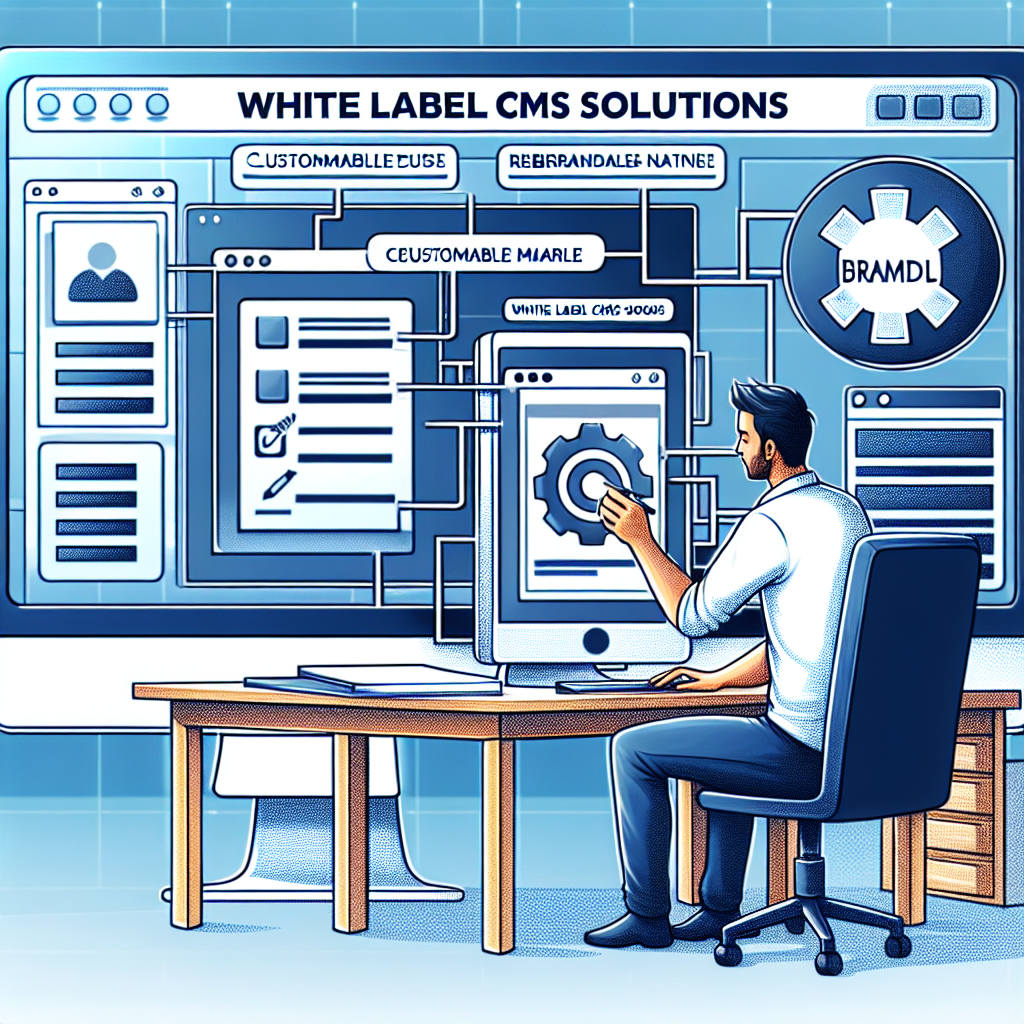Comprehensive Guide to White Label Web & CMS Development
Table of Content
- Introduction to White Label CMS Solutions
- Benefits of White Label CMS for Businesses
- Comparing White Label and Traditional CMS
- Case Studies and Success Stories
- Practical Implementation Tips
- Detailed Pricing Analysis
- Security Features and Protocols
- Choosing the Right White Label CMS Provider
- Conclusion and Next Steps
Introduction
White label web development, especially CMS solutions, offers a robust way to enhance service offerings without the extensive development process from scratch. This guide delves into how businesses and developers can leverage white label CMS development to deliver tailored services to their clients effectively while exploring AmpiFire’s unique offerings.
Introduction to White Label CMS Solutions
White label Content Management Systems (CMS) offer a sophisticated yet simplified approach to web development and digital experience management. By allowing agencies and developers to customize and rebrand pre-built CMS platforms, businesses can rapidly deploy their own branded solutions without the inherent complexities and resources required for building a traditional CMS from scratch.
A white label CMS acts as a foundation that integrates seamlessly into existing business ecosystems, providing a versatile and efficient method for content management that aligns with the unique needs of various industries. This streamlined approach facilitates quick market entry and reduces the overhead associated with extensive development and maintenance efforts traditionally seen with bespoke CMS solutions.
For a comprehensive understanding of white label web development options, including CMS, you might find our Complete Guide to the White Label Web Development Process particularly useful.
Streamlined Customization and Branding
One of the standout features of white label CMS solutions is the ease of customization. Developers can effortlessly tailor the system’s functionality and interface to match the specific requirements and branding guidelines of their clients. This not only enhances the user experience but also boosts brand identity, enabling businesses to offer bespoke services without needing extensive technical know-how.
Functionality and Flexibility
White label CMS platforms are typically built with robust, flexible architectures that accommodate various plug-ins and extensions. This modular design allows businesses to add or modify features with minimal disruption, ensuring that the CMS evolves in line with new business needs or technological advancements. As a result, companies can focus on crafting unique digital experiences rather than dealing with the intricacies of setting up a CMS from the ground up. If you’re interested in how pricing works for white label services, our article on Understanding Pricing for White Label Web Development Services could provide valuable insights.
A Real-World Success Story
Consider the case of “Tech Solutions Ltd.”, a mid-sized agency specializing in web development. They adopted a white label CMS, enabling them to reduce client onboarding times by 50% and cut overall development costs by 30%. The CMS’s adaptable framework allowed their team to implement custom solutions quickly, leading to increased client satisfaction and retention. This transformation not only improved their service offerings but also their profitability.
Comparative Advantages
In comparing white label CMS solutions to traditional systems, several advantages become evident:
| Feature | White Label CMS | Traditional CMS |
|---|---|---|
| Setup Time | Quick setup with minimal coding | Lengthy development cycles |
| Customizability | High, with brand-specific options | Often requires substantial coding |
| Cost-Efficiency | Cost-effective with flexible models | High upfront and maintenance costs |
| Security Features | Built-in, regularly updated | Needs custom setup and updates |
Pricing and Security
White label CMS solutions often employ tiered pricing models, offering basic packages with the option to add premium features as needed—suitable for businesses of all sizes. For instance, “CMS Pro” offers a base package for $200/month with additional security and analytics features available at an extra cost. Security remains a top concern, and these platforms typically include advanced security features like SSL support, regular vulnerability assessments, and system audits to ensure data integrity and protection.
In summary, white label CMS solutions represent a strategic advancement in digital content management, offering a shortcut to robust platform deployment without the daunting implementations typical of traditional systems. By leveraging these solutions, businesses can maintain focus on innovation and customer engagement, ensuring their digital ecosystems are as dynamic as their evolving needs.
Conclusion
White label CMS solutions provide businesses with a powerful tool to expand their digital service offerings efficiently and cost-effectively. As the digital landscape continues to evolve, adopting white label CMS can position companies for growth and long-term success. Businesses ready to enhance their capabilities can explore further by engaging with platforms like AmpiFire for demos and personalized consultations.

